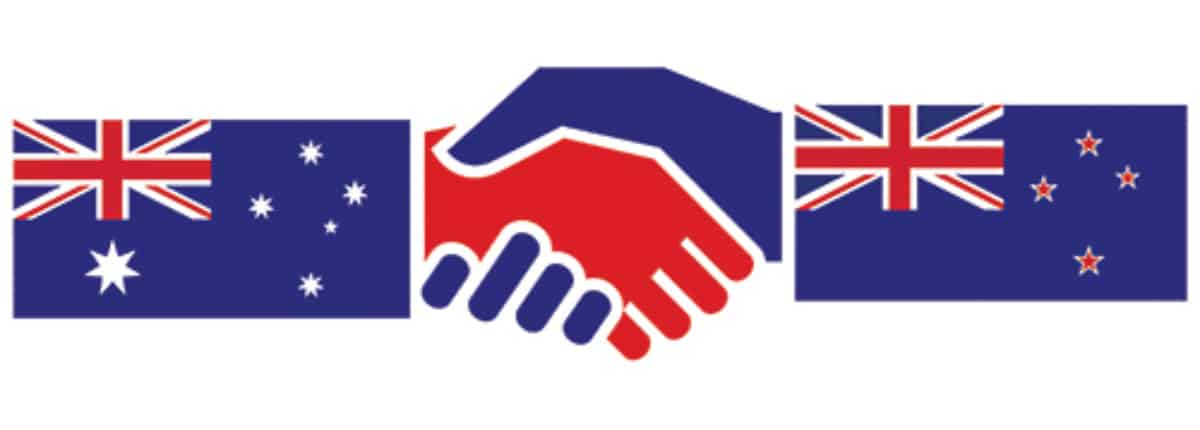International students are often in a dilemma when it comes to which country they should choose to study abroad. This decision must be made according to their personal preference, courses chosen, career path, end goal, countries’ climate, culture, security, tuition fees, living costs and if the end goal is getting permanent residence, the immigration program in that country.
Australia and New Zealand are among the most popular destinations for international students in the last decades. Therefore, we have put together a comparison of these two countries for international students to consider depending on their ultimate goals.
Key points of comparison
This table highlights some key features of the two countries, and details will be discussed further later in this post.
| Australia | New Zealand | |
| Quality of Education | 43 universities and hundreds of education institutes | 8 universities |
| Popular Courses | Engineering, Medicine, Veterinary Science, Architecture, Agriculture, Law, Accounting, MBA, Health Care, Information Technology, Computer Science, Media, Education, Commercial Cookery and Hotel Management | Visual communications, Health care, Business, IT, Hotel Management, and Hospitality & Tourism Management |
| Cost of Education | From AUD 7,800 to AUD 42,000 (from school to higher education) | From AUD 11,000 to AUD 37,000 (from school to higher education) |
| Living Expenses | At least AUD 15,000/ year | At least AUD 21,041/ year |
| Climate and Weather | Hot and Dry | Wet and Lush |
| Student Visas | Can include spouse and dependants.
Students can work 40 hours per fortnight, and unlimited hours in semester break |
Spouse and dependants must apply for separate visas.
Students can work 20 hours/ week, and unlimited hours in semester break, Christmas, and New Year |
| After Graduate visas | Can apply for post graduate visa for up to 6 years, depending on the course of study | Can apply for Post study visa for up to 3 years |
| PR Pathway | Various visa pathway for students, long occupation lists | PR pathway for students.
There are less occupations in the long-term skill shortage list. |
Quality of education
Australia
Higher education courses can be taken to earn an advanced degree and continue your studies in Australia. There are three main types of higher education which lead to Bachelor, Master and Doctoral Degrees.
In Australia it is quite common for students to enrol in a double or combined Bachelor’s Degree program which leads to the award of two Bachelor Degrees. This is most common in the fields of arts, commerce, law, and science.
There are 43 universities in Australia (40 Australian universities, two international universities, and one private specialty university). Along with our universities, many other institutions offer higher education courses. You can search for institutions and courses using the Institution and Course Search on this website.
World top Australian Universities (Ranking 2021):
- The Australian National University (Canberra) – Rank 31
- The University of Sydney (New South Wales) – Rank 40
- The University of Melbourne (Victoria) – Rank 41
- The University of New South Wales (NSW) – Rank 44
- The University of Queensland (Queensland) – Rank 46
- Monash University (Victoria) – Rank 55
- The University of Western Australia (Western Australia) – Rank 92
New Zealand
New Zealand has 8 state-funded universities, 16 Institutes of Technology and Polytechnics (ITPs) which have been unified into the New Zealand Institute of Skills and Technology (NZIST), and about 550 Private Training Establishments (PTEs), which include English language schools.
Choose the type of institution that is best for your career path:
- Universities offer higher degree-level education.
- ITPs and a few larger PTEs offer vocational degree-level education.
- PTEs tend to offer specific vocational programmes, mainly at certificate and diploma level.
World top New Zealand Universities (Ranking 2021):
- The University of Auckland (Auckland) – Rank 81
- University of Otago (Dunedin) – Rank 184
- Victoria University of Wellington (Kelburn) – Rank 223
- University of Canterbury (Christchurch) – Rank 270
- Massey University (Palmerston North) – Rank 272
Cost of Education and Living Expense
Australia
Cost of Study (see the funds calculator here)
| School Fees | $7,800 to $30,000 |
| Diplomas/ Certificates | From around $4,000 to $22,000per year |
| Bachelor’s Degree | Fees range from about $20,000 to $45,000, with higher fees for subjects such as medicine and veterinary science |
| Postgraduate degree | Fees range from about $22,000 to $50,000, with higher fees for subjects such as medicine and veterinary science. |
| PhDs | International PhD students pay the same as New Zealand PhD students, which is about $18,000 to $42,000 per year for most subjects. |
| English Language courses | Around $300 per week depending on course length |
Living Expense
As of October 2019, the 12-month living costs are;
- For students or guardians – AUD$21,041
- For partners coming with you – AUD$7,362
- For a child coming with you – AUD$3,152
New Zealand
Cost of Study
| School Fees | $11,000 for Primary; $13,000 for Secondary (public school)
$25,000 for private schools |
| Diplomas/ Certificates | From around $13,000 – $22,000 per year |
| Bachelor’s Degree | Fees range from about $22,000 to $32,000, with higher fees for subjects such as medicine and veterinary science |
| Postgraduate degree | Fees range from about $26,000 to $37,000, with higher fees for subjects such as medicine and veterinary science. |
| PhDs | International PhD students pay the same as New Zealand PhD students, which is about $6,500 to $9,000 per year for most subjects. |
| English Language courses | Study a general English course for $350 per week, or a Cambridge English exam course for $5,100 for 12 weeks. |
Living Expense
If you will be studying in New Zealand for more than one year, you‘ll need to prove that you have at least $15,000 to support yourself for the first year. If you’re studying for less than a year, you must have at least $1250 for each month of study to contribute to your living expenses.
Living costs will depend on your lifestyle and which part of the country you live in. Some costs vary by region. For example, you may need to travel more in the main centres, and transport costs may be more expensive than in your home country.
This living expense exclude tuition fees, air fare, visa fees, and study material costs.
As can be seen above, although the tuition fees in Australia and New Zealand are almost the same, the living cost in New Zealand is a bit less than that in Australia. Therefore, if you budget is an important factor to you, New Zealand may be a good choice for you.
Student Visa
Australia
You can apply for a student visa to study in Australia, and include your spouse and dependant children with your application. With a student visa, you are allowed to work up to 40 hours per fortnight during your semesters, and unlimited hours during semester breaks. If you are a Master by Research or PhD students, you are allowed to work unlimited hours.
Your spouse can also work up to 40 hours per fortnight. If you are studying a Master’s degree and above, your spouse might be allowed to work full-time in Australia.
In some states and territories, your dependant child may be waived the school fees.
New Zealand
With a student visa, you can work up to 20 hours per week, and unlimited hours during semester breaks, Christmas, and New Year.
You cannot include your spouse and dependant children in your student visa application. They need to make separate applications for visas that allow them to accompany you during your course.
Work rights are not automatically granted to your spouse. There are 2 types of visas that your spouse can apply for, depending on the course that you are doing:
- Partner of a Student work visa: your partner can only apply for this visa if you are studying towards a level 7 or 8 qualification (Bachelor and above) on the Long-term Skill Shortage List, or a Level 9 or 10 qualification. This visa allows your partner to work in New Zealand.
- Partner of a Student Visitor visa: if you are not studying the acceptable courses as mentioned above, your spouse can apply for this type of visa, but he/ she cannot work in New Zealand.
Furthermore, a dependent child can be treated as a domestic student, which means you don’t have to pay tuition fees for them to go to school.
After graduate visas
This is an important factor that international students should look into when deciding which country they should study at. A visa after graduation is a good opportunity for students to look for jobs and obtain work experience in that country. This is also a good time for students to earns more money, and travel to the areas that they were too busy to visit during their study period.
Australia
In Australia, international students have the opportunity to apply for a post graduate visa and stay in Australia up to 6 years. The period of this visa will depend on a number of factors, including what courses the students take, where the students live during their study.
There are two streams of post graduate visas:
New Zealand
If you study a qualification at level 4 or higher, you may be eligible to apply for a Post-study work visa. A Post-study work visa lasts for 1, 2 or 3 years depending on the level of your qualification and where you studied.
A Post-study work visa lets you work for any employer and in almost any job.
Your partner can apply for a work visa and your dependent children can study fee-free as domestic students.
Permanent Residence pathway
Australia
Australia has various visa schemes enabling international students to apply for a permanent residence visa after they study and earn experience. International students who study in Australia for at least 2 years will have more advantages to apply for a wide range of visas.
To find out more about PR pathway you graduate, click here .
New Zealand
The skill shortage in this country makes it easier to get the work visa and PR. You must, however, have a job offer in hand along with relevant qualification.
Noticeable, the skill shortage list in New Zealand is shorter than that of Australia. This means that you are more occupations eligible to apply for PR in Australia.

Phu Vu Minh
Bachelor of Law
Master of Human Resources Management – Curtin University, Perth
Phu is our Education Consultant (QEAC: O761) and Migration Agent Assistant at VisaEnvoy. She was practising as a lawyer in Vietnam prior to migrating to Australia. She is currently assisting potential overseas students to obtain educational placements. Phu deals with Universities, TAFE and vocational colleges, and English Language schools as well as a range of private schools for primary and secondary students.
With her knowledge in human resource management and experience working in multinational companies, Phu helps international students to develop study plans in Australia to acquire knowledge and skills that meet their needs and objectives. Phu is also fluent in Vietnamese.
To speak with Phu about your study options please book a time here.






Upcoming Immigration Changes 2026
New 4-Tier Invitation System for 189 Visa
Australian Immi App for Biometrics
Remote Work and Travel Now Clearer for 491, 494 and 489 Regional Visa Holders
New 186 TRT Rule Adversely Impacts Medical Practitioners’ PR Pathway